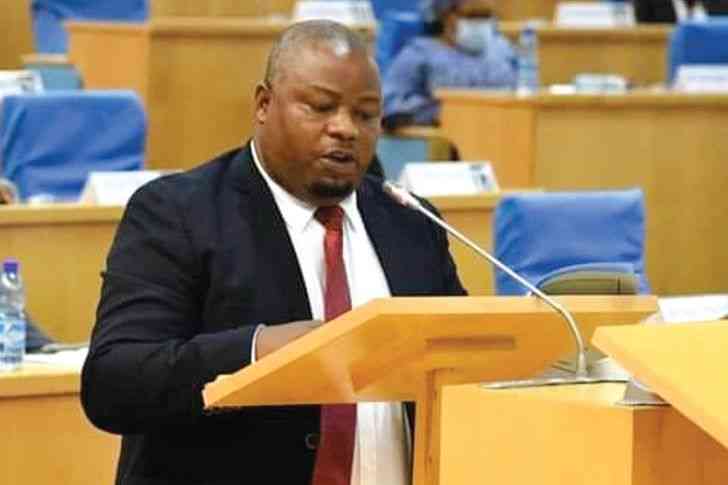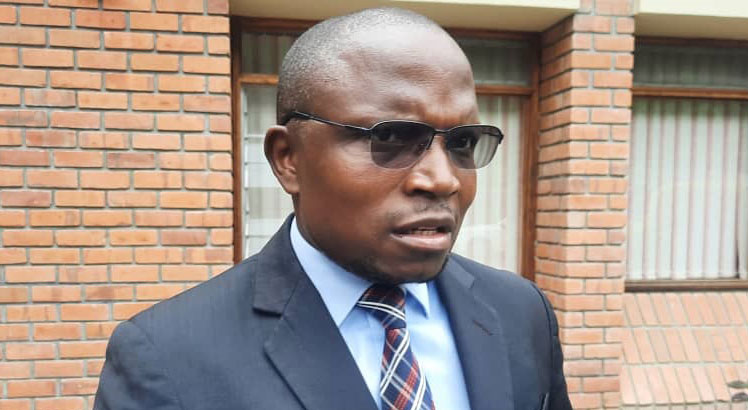Judges, magistrates reject 22% pay hike, pull out of negotiations with govt
It never rains, but pours for the Executive as another crisis looms in the Judiciary after judges and magistrates yesterday rejected a 22 percent salary increase offer and pulled out of negotiations with Capital Hill.
During a meeting in Blantyre yesterday to map the way forward on the 22 percent offer, judges and magistrates from across the country also agreed to take the matter to Parliament and, if nothing happens, sue individual government officers who were involved in the negotiations, according to a Judiciary spokesperson.

The meeting started at 10am and ended at 2.30pm with delegates skipping lunch break.
The development comes barely a month after the end of a seven-week Judiciary support staff strike that paralysed the country’s justice delivery system between November and December last year. The stand-off ended early January after the two parties agreed to resolve the matter without freezing the rule of law.
The Judiciary wants a 110 percent hike in packages for Supreme Court judges, 78 percent increase for High Court judges and registrars, among other categories.
In addition to salary increase demands, the judicial officers also want government to replace their vehicles which clocked 150 000 kilometres as stipulated in their Lordships’ Terms and Conditions of Service.
However, government says it has no money to purchase new vehicles for the Judiciary, and instead offered a ‘take it or leave it’ 22 percent salary increment.
Judiciary spokesperson Mlenga Mvula yesterday confirmed about the meeting and the decision made.
He said: “Parliament was aware and has been following these issues since they started, but the matter will now be officially presented to them. It was Parliament that determined the Judiciary perks and the Executive was only supposed to implement them.
“However, if Parliament directs the Executive to pay the Judiciary, but nothing happens, litigation will follow where individuals that were involved in the negotiations will be sued.”
Asked what will happen should the litigation fail, Mvula said more measures will be taken and did not rule out another strike.
Chief Secretary to Government George Mkondiwa could not pick his phone after calling him several times yesterday.
However, Minister of Information, Tourism and Culture Kondwani Nankhumwa, who is also the official government spokesperson, said Capital Hill will respond once written communication is made.
“The Judiciary and government have been talking to each other through written communication. So, when whatever they have agreed is sent to us through written communication, we will pick up from there,” he said.
For nearly two months from early November last year, the courts were not operating after Judiciary support staff downed tools to force government to increase their salaries. Apart from the Judiciary support staff; there were also industrial actions at the Anti-Corruption Bureau (ACB), University of Malawi (Unima) and Parliament.
Earlier this month, Parliament Secretariat staff were given a phased 24 percent increment after their two-day sit-in disrupted Mid-Term Budget Review Meeting proceedings. The Unima dispute was also resolved, but the one at the ACB remains inconclusive.
It all started in September last year when government bowed to the mainstream civil servants’ salary hike demands, awarding them an average 45 percent pay hike that raised the wage bill by about K10 billion, putting pressure on the resource drought-hit zero aid budget.
The latest episode of intensified pressure on the wage bill comes after Finance Minister Goodall Gondwe admitted during his recent Mid-Year Budget Review Statement that the fiscus failed to meet its first half year domestic revenue targets even as donors continue to cling to budgetary support.
Treasury has also projected that economic growth—which creates the wealth from where higher public revenue can be generated—will be subdued this year on the back of floods that hit the influential agriculture sector and destroyed critical infrastructure such as public roads and schools.
Cuts to public infrastructure investment, brutal slashes to social spending in the face of austerity and shrinking private sector activities as most of their operational capital is tied into unpaid arrears by government, could also weigh heavily on economic growth and Capital Hill’s ability to meet its obligations, let alone spend a huge chunk of its pitiable revenue on personal emoluments while the public social architecture collapses.






Why does the judiciary behave like this,do they think they are above anyone? We have doctors and Nurses who at times contract diseases in the course of the duties but they dont push for increaments like the judiciary yet they are the most important group of government workers. 110% increase? serous?
Where do they think the government will get the money from? These people are marrying 4/5 wives and once they get pressure from the wives then they start looking at where they can make quick cash hence these grave requests. Please learned people of the bench,reason,think and consider your fellow countrymen who will be killed with taxes if the government is to meet your demands.
I wish I was a government consultant on labour issues,the best advise to government is :Retrench all the workers in government institution,revise the working conditions,adviertise the posts,let those who want to work at the current conditions reapply. If they feel they are earning less why can’t they quit and start doing/working where they will be paid according to their wishes! I wish if the government works like a business entity where win-win solutions are applied. If it was the company the judges could have been told that:gents and ladies,this is what we have, its either you work with us and earn this or resign and join where they will pay you well.
The increments are according to the Lordships’ terms and conditions of service. The judicial staff have their own working conditions different from that of the nurses and doctors. If the government want to make any changes on these working conditions, let them take the matter to the parliament which will approve any amendments to the condition.
The percentages that our friends in the judiciary are demanding is quite shocking given our present financial circumstances. There appears to be no sense of reason or patriotism on those making these demands. They put their interest first and those of the nation second. Here, I mean not only the judges though but also the parliamentarians and the Executive who we all know awarded themselves increments way beyond what the judiciary staff is demanding. The genesis of all these obscene demands is lack of leadership in all the three branches. It is a big shame.
Could we please clearly define this is a percentage, 22% of what? can we qualify the what because the base also matters